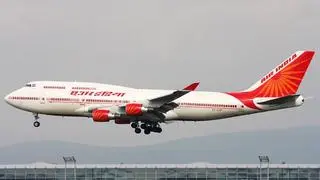With the Covid pandemic easing out, the aviation sector is bouncing back in the domestic sector, and soon in the international sector too. Over 5.30 crore people travelled on domestic airlines from January to September 2021, 20 per cent higher than the same period of last year.
The aviation sector is now grappling with the issue of skilling/reskilling lakhs of employees right from pilots to ground handling staff whose knowledge and skills may have become redundant. The Indian aviation industry employed over 20 lakh staff members before the pandemic.
“The International Air Transport Association (IATA) had already sounded the alarm bell. Many skilled employees have left the industry. Recruiting, training and accrediting new staff can take up to six months. It is critical that the industry retains current staff and finds more efficient ways of onboarding new personnel,” said Monika Mejstrikova, IATA’s Director of Ground Operations.
R Ramanathan, CEO, AISATS, a 50:50 joint venture between Air India Ltd and Singapore-based SATS Ltd, said, “upskilling/reskilling our employees during the pandemic was vital in adapting our business to the market realities created by the pandemic. It made employees more receptive to new roles. An example of this is the ability to handle the numerous passenger flights that were converted to freighters in response to increased demand for essential cargo.”
Shifting job functions
“The pandemic has shown that skills valued by employers within the aviation industry have evolved to keep pace with the changing landscape of the aviation industry. This has developed into a “skill gap” and employers across the value chain are finding it challenging to hire trained workers. Most aviation stakeholders realise how important it is to close this gap, if they plan to meet the heightened demands of the travelling public. This will require a skill-based approach that focusses on levelling up employees’ digital and cognitive capabilities, self-awareness and communication skills,” he said.
“A hybrid training approach, which combines mobile learning with conventional training, will help employees develop digital acumen, better cognitive, social and critical thinking skills, and a resilient work ethic,” he added.
Agreeing with Ramanathan, B Govindarajan of Tirwin Training, a DGCA approved and IATA Accredited Training organisation, says there is a bigger need for upskilling since the traditional job functions have seen a big shift because of contactless services.
Focus on managerial skills
The skill development in Indian aviation is more focussed on functional skills, thus leaving the managerial skills unattended.
“Managerial skills largely depend upon the understanding of unique aspects of the aviation business. This deficiency still persists, as is evident from the quick winding up of many new entrants and a few others just surviving with astronomical financial losses. It is time to strengthen the knowledge base to build contemporary managerial skills,” Govindarajan added.
Sumit Kumar, Vice President, NETAP, which is by TeamLease Skill University, says aviation companies have to ensure that their staff has upgraded themselves in accordance with DGCA guidelines. This requires a lot of reskilling and upskilling efforts.
With the industry growing, customer management will see a surge in employment opportunities and this workforce will need to be equipped with technical skills.
“Overall, it becomes imperative for air carriers to invest in the skill development of their staff across different functions. Companies should look at blended learning techniques and an experiential learning process for effective implementation of skilling practices,” he said.
Anand Jacob Verghese, Chairman of Orient Flights, an aviation flying institute, said a global survey of 800 HR leaders in the aviation industry responsible for learning and development, says that right-skilling existing workers and ensuring that new hires can quickly acquire the necessary skills will be key to building the post-pandemic workforce. “The pandemic had already forced many airlines and other companies in the value chain, like ground service providers, to assess what skills their employees possessed to adapt to new operational requirements. A case in point was the need to load cargo in cabins of passenger aircraft repurposed to carry cargo only. Following long absences, upskilling existing staff and onboarding new staff is central to resuming operations and retaining customer satisfaction. 62 percent of companies currently have plans in place, or are working on plans to carry out upskilling and onboarding training,” he said.







Comments
Comments have to be in English, and in full sentences. They cannot be abusive or personal. Please abide by our community guidelines for posting your comments.
We have migrated to a new commenting platform. If you are already a registered user of TheHindu Businessline and logged in, you may continue to engage with our articles. If you do not have an account please register and login to post comments. Users can access their older comments by logging into their accounts on Vuukle.